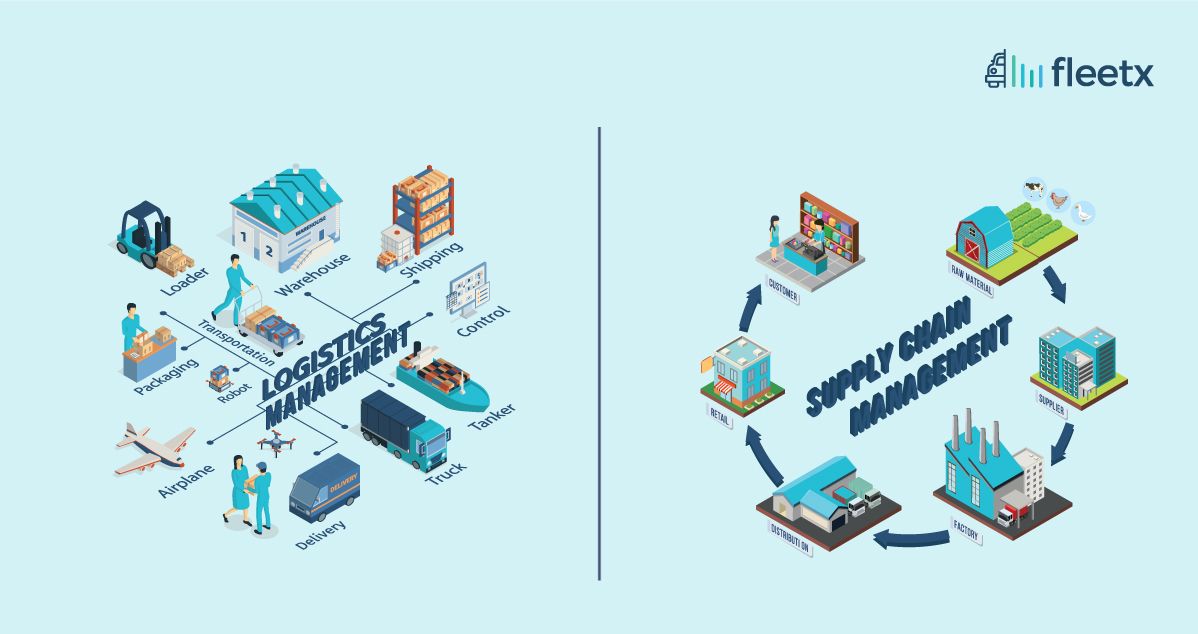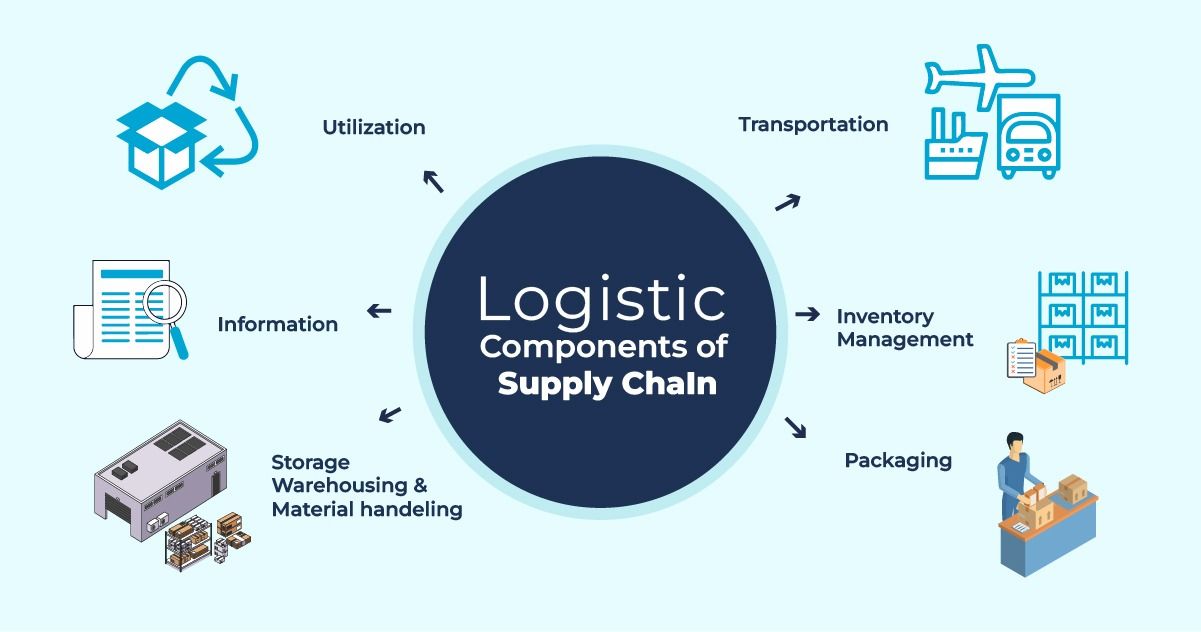
Supply chains are delicate and complicated due to their reliance on constantly shifting customer expectations. A supply chain without properly managed logistics cannot guarantee high value. As a result, one of the most important aspects of any supply chain's quality is logistics.
Logistics and supply chain management are concepts that are used interchangeably. Some claim that supply chain management is the "new" logistics and that there is no distinction between the two concepts. Nevertheless, despite their mutually beneficial relationship, each serves different qualities and have unique roles and responsibilities. Despite advances in technology, logistics management has been around for a longtime. Supply Chain Management, however, is a contemporary field that dates back to the 19th century.
The logistics sector is in a disorganized state in India. The general perception of logistics being a manpower-driven industry there stands poor facilities and high levels of loss. Companies can develop a competitive advantage by optimizing operations, enhancing customer service, and better understanding the importance of logistics management in any supply chain.
Why are logistics & Supply Chain Management interconnected?
SCM covers the complex procedures required to find and purchase raw materials and finally produce finished items. SCM employs logistics to get products to customers, but its ultimate goals are to improve financial performance and strengthen a company's competitiveness.
In other aspects, SCM establishes the strategy and oversees everyday logistical operations that take place in manufacturing plants, distribution centers, and other facilities. Whether the customer is a producer, distributor, or consumer, logistics is the part of the supply chain that keeps or distributes finished products or services. Delivering products and services to customers on time and at a fair price is the aim of logistics.
Forward logistics and forward supply chain management is accomplished with effort, but many firms also need to understand the "backward" process, and they should be aware that reverse supply chain management and reverse logistics management are quite distinct from one another.
The transfer of products from customer to vendor, or at least one step backward in the supply chain, is referred to as a reverse supply chain. Supply chain can be termed as 360 degrees supply chain, which means the product is sent backward to the original source from where it came from. For instance, these days many fabrics are designed and made sustainable so that it can be capable of going back to nature or can be recycled. Reverse logistics, on the other hand, is a higher level viewpoint that covers the complete process of organizing, executing, and managing goods. Reverse logistics is required for all actions that involve managing returns of defective items, picking up empty packaging, or even collecting old home appliances and other used goods.
What is supply chain management?
The handling of a good or service's full manufacturing flow, from the raw materials to the delivery of the finished product to the customer, is known as supply chain management. A business establishes a network of suppliers to distribute the product from raw material suppliers to businesses (retailers) that deal with customers directly.
What is logistics management?
Planning, implementing, and controlling the efficient, effective forward and reverse flows and storage of products, services, and associated information between the point of origin and the site of consumption in order to fulfill customer needs is known as logistics management. It includes, inbound and outbound logistics, fleet management, order fulfillment, warehousing, inventory control, etc.
Major differences between Logistics Management and Supply Chain Management
Supply chain cannot be successful without proper logistics management. The key differences both have are as follows:
- Logistics refers to the movement and storage of commodities both inside and outside the company. Supply chain management is the mobility and integration of supply chain activity.
- The transportation, storage, and flow of commodities, services, and information both inside and beyond the organization are referred to as logistics.
- Complete customer satisfaction is the primary goal of logistics. Contrarily, obtaining a significant competitive advantage is the primary goal of supply chain management.
- Logistics is an activity within the supply chain.
Here are some similarities between SCM and logistics:
- Both concentrate on products or knowledge.
- The ultimate goal of both is to contribute to the business's success, customer satisfaction and set it apart from competitors.
- Both aim to raise customer satisfaction.
- Both revolve around the same chain of suppliers, manufacturers, wholesalers, and retailers before reaching the retailer or consumer.
- Supply chain management and logistics are closely related to one another. The logistics department is the area of supply chain management that handles the overall transportation and the inventory process. Despite the fact that people can assume they are different because each department is allowed to handle its operations.
Why Supply Chains Need Good Logistics management
Any supply chain needs logistics since it is a key component of the chain and because it also serves the following purposes:
- lowering expenses and increasing effectiveness.
- supplying the appropriate goods at the appropriate time to achieve customer satisfaction and organizational effectiveness.
- offering a quick and efficient shipping alternative, starting with inbound and ending with outgoing logistics.
- supplying to the location of the consumer quickly and providing the most affordable place to produce the items.

Conclusion
It is important to understand the importance of logistics in any supply chain management so that one can conceptualize how they can achieve overall efficiency in the supply chain process.
The path to effective supply chain management is paved by reliable, cost-effective logistics. For successful logistics there should be an efficient supply chain management process. The bar has been raised for supply chain management and logistics as a result of the requirements established by companies that distribute goods. Having said that, adopting the most recent technology advancements will be necessary for everyone who wants to keep up. The use of technology is essential for supply chain management and logistics management success in every domain.
What are 3 types of efficient supply chain strategies?
3 Types of efficient supply chain strategies are strategic, tactical and operation.
What are the three types of logistics?
3 type of logistics are Inbound logistics, Outbound logistics and Reverse logistics.







